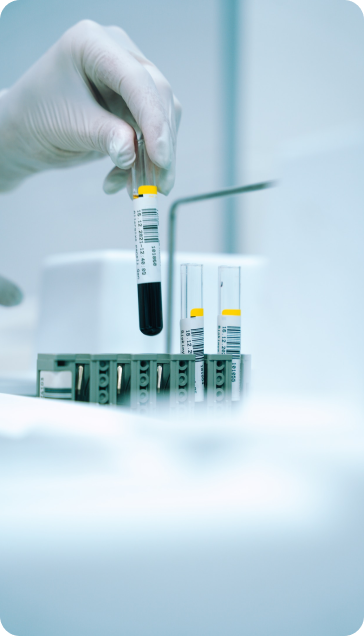List of Included Tests - 8 Tests
A complete blood count (CBC) is a blood test used to evaluate your overall health and detect a wide range of disorders, including anemia, infection, platelets disorders and leukemia.
Iron tests measure different substances in the blood to check iron levels in your body. Iron is
a mineral essential for making red blood cells. Red blood cells carry oxygen from your lungs to the rest of your body. Iron is also important for healthy muscles, bone marrow, and organ function. Iron levels that are too low or too high can cause serious health problems.
Zinc can be tested along with other trace elements (e.g iron, copper & selenium) to identify deficiencies where a person may benefit from supplementation. When a person displays clinical symptoms that may be associated with zinc deficiency, the measurement of zinc can determine if supplementation is required.
Vitamin B-12 plays an essential role in red blood cell formation, cell metabolism, nerve function and the production of DNA ( molecules inside cells that carry genetic information. Vitamin B-12 deficiency can lead to anemia, fatigue, muscle weakness, intestinal problems, nerve damage and mood disturbances.
Ferritin is a blood protein that contains iron. A ferritin test helps your doctor understand how much iron your body stores. Ferritin test reveals that your blood ferritin level is lower than normal, it indicates that your body iron stores are low and you have iron deficiency. As a result, you could be anemic.
A TSH test is a blood test that measures this hormone. The thyroid is a small, butterfly-shaped gland located near your throat. Your thyroid makes hormones that regulate the way your body uses energy. It also plays an important role in regulating your weight, body temperature, muscle strength, and even your mood.
Vitamin D is essential for several reasons, including maintaining healthy bones and teeth.It may also protect against a range of diseases and conditions, such as type 1 diabetes.
Folate (vitamin B-9) is important in red blood cell formation and for healthy cell growth and function. The nutrient is crucial during early pregnancy to reduce the risk of birth defects of the brain and spine. Folate is found mainly in dark green leafy vegetables, beans, peas and nuts. Fruits rich in folate include oranges, lemons, bananas, melons and strawberries. The synthetic form of folate is folic acid. It’s in an essential component of prenatal vitamins and is in many fortified foods such as cereals and pastas. A diet lacking foods rich in folate or folic acid can lead to a folate deficiency. Folate deficiency can also occur in people who have conditions, such as celiac disease, that prevent the small intestine from absorbing nutrients from foods (malabsorption syndromes).
Preparation
- Fasting is not required




